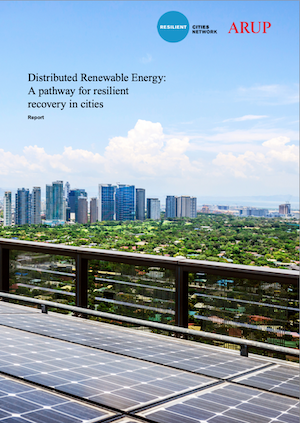
The increasing impacts of climate change are putting resilience high on cities’ agendas, alongside ambitious targets for greenhouse gas emissions reductions. Deploying distributed renewable energy (DRE) services in cities—systems that generate and distribute energy independently of any centralized system—will help deliver both.
The global scale of the opportunity and need for DRE is enormous, yet the deployment of projects is far short of projections. Market rules and policy support are constraints in some cities, but there are also universal barriers that can be readily addressed to shape DRE opportunities into investable propositions.
This report from Resilient Cities Network and Arup focuses on the practical steps cities can take to turn their DRE opportunities into resilient infrastructure that creates benefits.
Contents
- Foreword
- Executive summary
- The role of DRE in cities
- Barriers to developing DRE in cities
- Levers cities could use to develop DRE in cities
- Project development program examples
- Developing your city DRE program
- Conclusions
Source: Resilience Cities Network
Download (10.5 MB)

